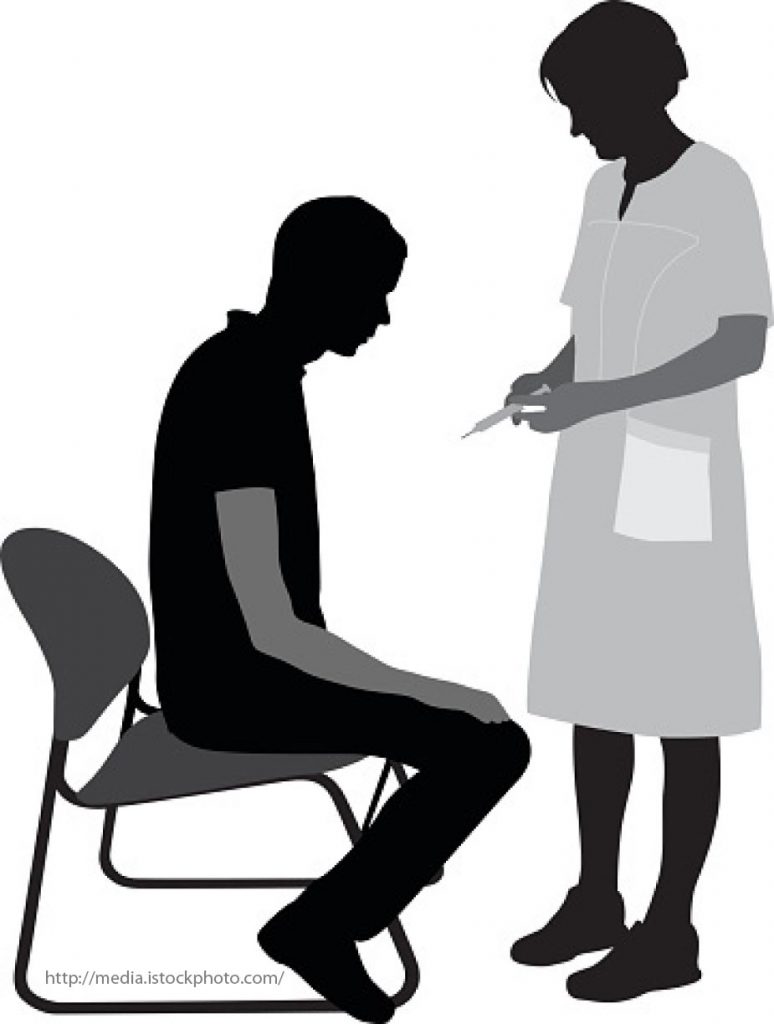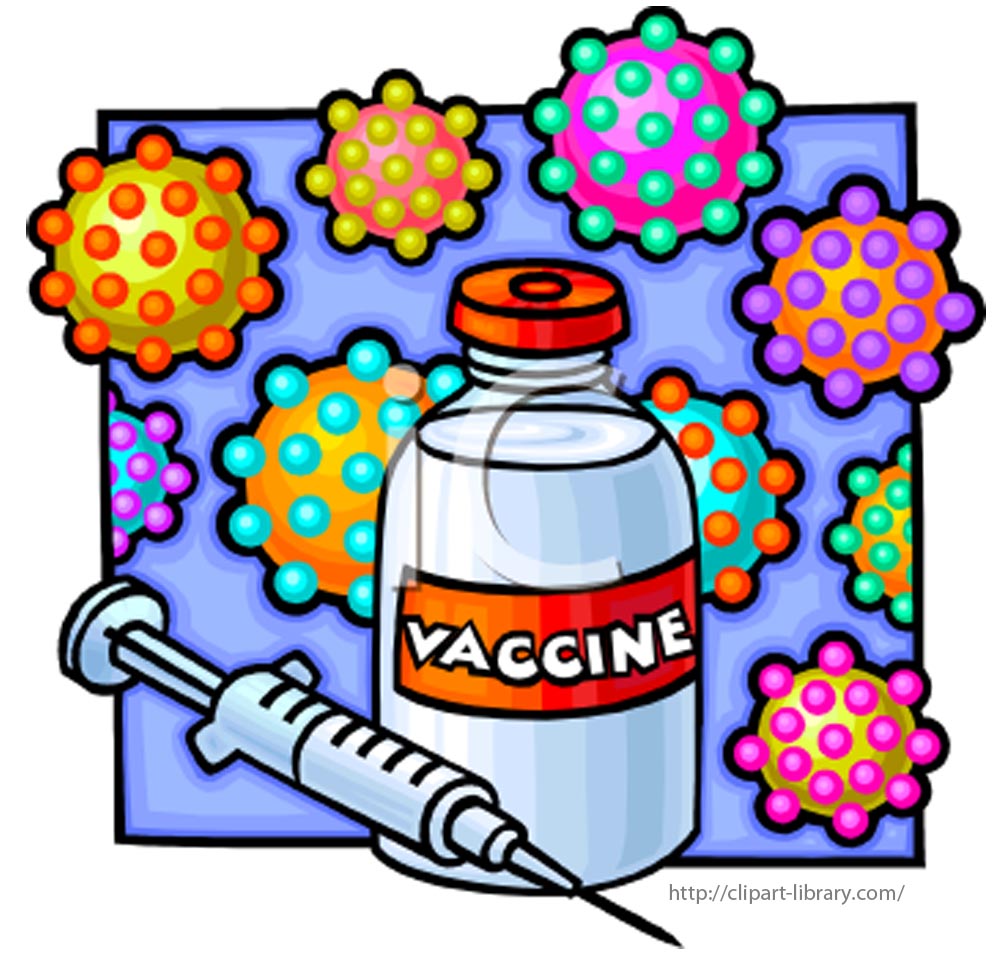Do you know which vaccines you need? Even for us doctors, it’s not that easy. I did some research to come up with the following list of vaccines for adults. I have enumerated who needs to get it, at what age they need it, and what are the expected benefits. Most of the recommendations are gathered from the U.S. Centers for Disease Control and Prevention.
To illustrate the concept and importance of vaccination, let me give an analogy in sports.
Boxers need to practice with sparring partners before going into a big fight because they want to be ready when the real opponent comes. Similarly, vaccines are given to people because they contain a weakened or killed form of a disease.
Since the infectious substance inside the vaccine is weak, the body can easily overcome it, and at the same time stimulate the immune system to produce certain antibodies against the disease. Therefore, when the real disease comes, your body “remembers” having fought a similar battle before and can now easily beat the invader.
So, what happens if a person didn’t get vaccinated? Without the vaccine, he is prone to get the disease and may succumb to its complications.

Here is the list of vaccines recommended for adults:
- Flu or influenza vaccine. Influenza, or more commonly known as flu (trangkaso in Filipino), is a viral disease that causes symptoms of fever, body weakness and muscle aches. Yearly, flu vaccination can be given to all adults but it’s more beneficial for those 50 years old and above; younger than 50 but with medical conditions like high blood pressure, diabetes and emphysema; and health workers. In the Philippines, the best time to get the vaccine is between February to June so you can be protected when the rainy or flu season comes. Who should not get it: those who have an allergy to eggs or to a previous flu vaccine and if a person is currently sick.
- Pneumococcal vaccine. Pneumonia is a serious infection of the lungs, and a common cause of death for the elderly. Patients with high blood pressure, diabetes and asthma are prone to develop pneumonia. The pneumococcal polysaccharide vaccine is recommended for persons age 65 and older. Those younger than 65, cigarette smokers, or have chronic illness like heart disease, diabetes, liver disease and asthma may also receive the vaccine.
It is usually given once but may be repeated after five years for certain individuals. Ask your doctor. Who should not get it: those with an allergy to the vaccine or if currently sick. - Hepatitis B vaccine. This vaccine is the world’s first vaccine against cancer. Hepatitis B can cause hardening of the liver, liver failure and liver cancer. The disease is caused by the hepatitis B virus and can be passed on to others through bodily fluids (through blood transfusion and sex), from mother to child, and the use of intravenous drugs. In the Philippines, 11 percent to 16 percent of adult population are positive for hepatitis B. To find out if you need the hepatitis B vaccine, check your Hepatitis Profile blood test first. Then your doctor will know if you need to get vaccinated or not. Hepatitis B shots are given three times, within a period of six months. Who should not get it: Those who have an allergy to baker’s yeast or a previous dose of the vaccine.
- Tetanus vaccine. Tetanus is a deadly disease that paralyzes the muscles, and can lead to lockjaw and death. A person can get tetanus if they have an open wound that gets contaminated with the tetanus bacteria. If you didn’t have any tetanus shots as a child, then you need to get vaccinated three times within a 12-month period. If you have had previous tetanus shots, you should still get a booster shot every 10 years. As a first-aid and to prevent tetanus, clean wounds immediately with running water or povidone iodine.
- Herpes zoster (shingles) vaccine. Herpes zoster or shingles is a viral disease that causes painful skin blisters to appear in a limited area of the body. Some cases may lead to long-term nerve pain, facial paralysis and eye complications. Hence, the Centers for Disease Control and Prevention recommends getting one dose of the vaccine if you are 60 years and older. This vaccine may help protect you from getting herpes zoster and its complications. Who should not get it: pregnant women, those who have allergy to gelatin or the antibiotic neomycin, and those with a weakened immune system.
- HPV vaccine. The human papilloma virus vaccine helps prevent genital warts and can reduce the transmission of certain viruses that may lead to cervical cancer in women. The Centers for Disease Control and Prevention recommends giving the vaccine for women starting at the age of 11 or 12 years and up to 26 years. Three doses of the HPV vaccine are usually given in a span of six months. In some countries, males between the age of 11 or 12 years and up to 26 years are also given the vaccine (specifically the HPV4 vaccine) to reduce the chances of getting genital warts. For more details about this vaccine, consult your doctor. Who should not get it: those who have allergy to yeast or latex, or allergy to a previous injection of the vaccine; pregnant women; and if currently sick. Aside from the ones listed above, there are other vaccines that may be given in special cases. Locally, we can consider getting the hepatitis A vaccine. Hepatitis A is a common liver infection caused by eating contaminated food. Two doses of the vaccine are given.
Finally, for those persons who didn’t complete their childhood immunizations (maybe their parents didn’t bring them regularly to the doctor), kindly consult a doctor to see what catch-up vaccines you may need. — First published in Tulay Fortnightly, Chinese-Filipino Digest 29, no. 9 (October 4-17, 2016): 11.
